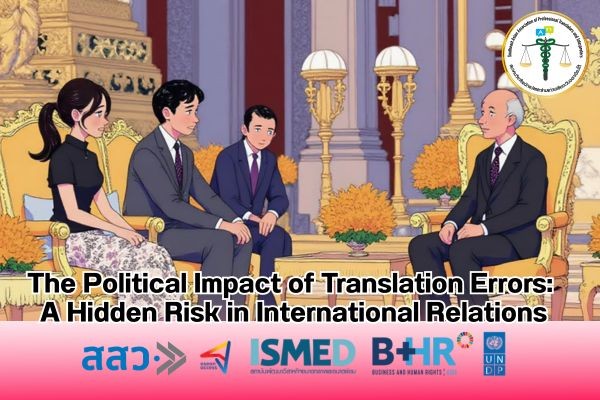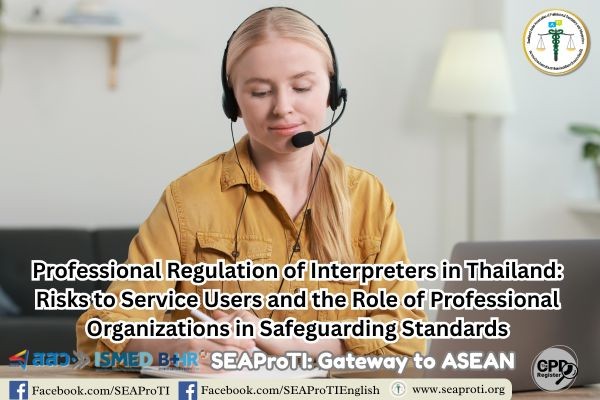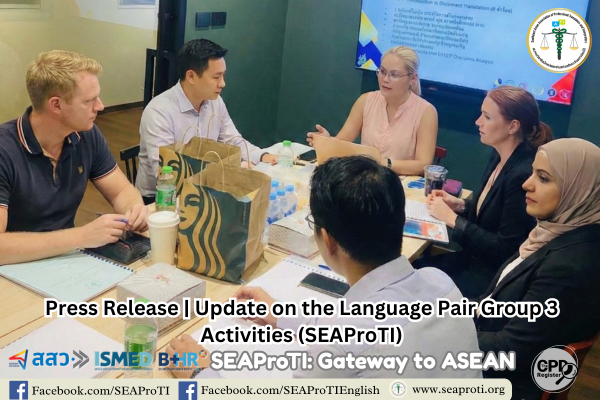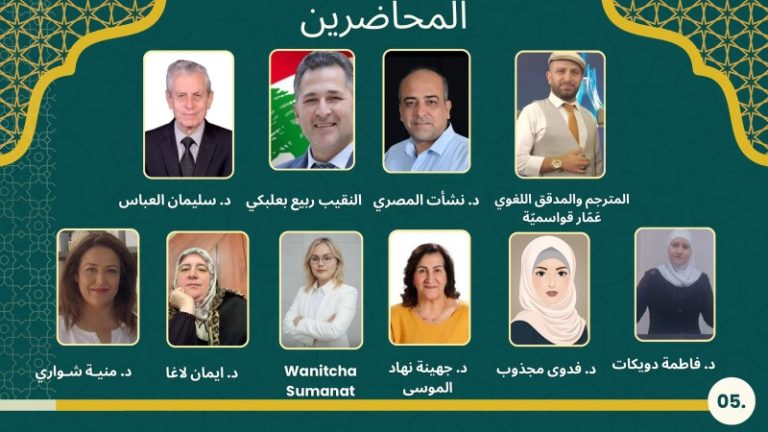The Political Impact of Translation Errors: A Hidden Risk in International Relations
In today’s world, where international communication is both rapid and complex, the roles of interpreters and translators have become more critical than ever especially in the fields of diplomacy, politics, and national security. Accurate communication not only fosters mutual understanding but also serves as a crucial tool for preventing conflict. However, errors in translation whether caused by misunderstanding, inappropriate word choices, or a lack of cultural awareness can lead to profound and far-reaching consequences at both national and international levels.
This article analyzes the political ramifications that can arise from translation errors, particularly in diplomatic negotiations, international policy statements, and security-related situations. It provides real-world examples and offers insights into how such risks can be mitigated.
1. Misunderstandings Between Nations Due to Translation Inaccuracy
Language is more than a medium of information—it reflects the values, culture, and intent of the speaker. As such, translating political discourse involves more than just converting words from one language to another. If the translator or interpreter fails to grasp the true context, mistranslation can cause significant misunderstandings.
For instance, a political leader might use the expression “break the ice” to ease tensions during a meeting. If this phrase is translated literally—such as “smash the ice”—rather than its intended figurative meaning of “initiating conversation,” it may confuse or mislead foreign counterparts. Such confusion in high-stakes diplomatic meetings can derail otherwise productive negotiations.
2. Distortion of Intent and Misrepresentation of Political Messaging
Political language often carries implications beyond its literal meaning. Idiomatic expressions, diplomatic rhetoric, and culturally embedded phrases demand a translator who deeply understands not only both languages but also the relevant cultural and political nuances.
A failure to accurately convey the speaker’s true intent can result in the distortion of the message. For example, a speaker may deliberately use vague or non-committal language to preserve diplomatic flexibility. If the interpreter mistakenly renders this as a firm or dismissive statement, the receiving party may misjudge the speaker’s position or intentions, possibly escalating tensions.
3. Loss of Credibility on the International Stage
Credibility is a cornerstone of diplomacy. Even minor errors in translation can erode trust and professionalism, and repeated mistakes may suggest a lack of respect or seriousness in diplomatic communication.
In some cases, mistranslation can be perceived as deliberate manipulation. More often, persistent translation issues lead other nations to view the source country as lacking the capability or integrity to engage constructively. This may damage international relations and undermine the effectiveness of long-term diplomatic efforts.
4. Strategic Risks: Mistranslation in the Context of National Security
Translation errors can be particularly dangerous in matters related to national security. Whether involving military orders, intelligence reports, threat assessments, or emergency communications, inaccurate translations can result in misjudging threats, misdirecting responses, or missing crucial warnings.
One of the most striking examples in history is the case of the Japanese word mokusatsu during World War II. The term, which can mean “to withhold comment,” was translated by Allied forces as “to ignore” in Japan’s response to a surrender ultimatum. This misinterpretation contributed to the decision to drop the atomic bomb on Hiroshima—a tragic example of how linguistic nuance can carry life-or-death consequences.
5. Political Tensions and the Escalation of Crises
In volatile or sensitive contexts, translation errors can act as a catalyst for political crises. High-level diplomatic statements or press briefings, when misinterpreted, may be perceived as provocations, insults, or challenges to national sovereignty.
In such situations, even a single mistranslated word may derail negotiations, provoke retaliatory actions, or lead to diplomatic fallout—such as the withdrawal of ambassadors, suspension of treaties, or economic sanctions. The more fragile the international relationship, the greater the potential damage caused by linguistic missteps.
6. Contemporary Case Studies and Real-World Consequences
Beyond the historical example of mokusatsu, there are modern instances where translation errors have sparked international tensions. For example, during live press conferences, misinterpretation of a leader’s remarks can lead to misleading media coverage, international backlash, or misinformation circulating among global audiences.
Similarly, errors in translating clauses in bilateral agreements or treaties have led to differing interpretations, resulting in legal disputes, delayed implementation, and strained political relations.
7. Preventive Measures and Risk Mitigation Strategies
To avoid the political fallout from translation errors, institutions and governments must implement rigorous preventive strategies:
- Professional Interpreter Selection: Translators and interpreters for political contexts must possess more than linguistic proficiency. They must understand diplomatic protocol, political discourse, and cross-cultural sensitivities.
- Specialized Training: Professional development should include training in diplomatic interpreting, policy translation, and confidentiality protocols. Interpreters must also learn to operate effectively under pressure and in high-stakes environments.
- Peer Review Systems: Critical translations—such as international agreements or public statements—should be reviewed by teams of experts, including both linguists and political analysts.
- Pre-Briefing and Integration: Interpreters should be integrated into the communication process from the outset. Being included in preparatory meetings enables them to understand the context, objectives, and tone expected, ensuring consistency and accuracy in delivery.
Conclusion
Translation in political and diplomatic contexts is not merely a technical task. It is a form of cultural and strategic mediation that requires deep insight into language, intention, and political nuance. Mistakes in this field can do more than distort meaning—they can distort history.
Whether through misunderstandings, distorted intent, or misinformation, the consequences of poor translation in diplomacy can be severe—ranging from a loss of international credibility to the escalation of full-blown political crises.
As global interactions continue to intensify, the demand for highly skilled, culturally competent, and ethically grounded interpreters and translators has never been greater. Strengthening training, professional standards, and ethical oversight in this profession is not an option—it is an urgent necessity for global stability.
References:
- Gile, D. (2009). Basic Concepts and Models for Interpreter and Translator Training. John Benjamins Publishing.
- Pöchhacker, F. (2016). Introducing Interpreting Studies (2nd ed.). Routledge.
- Seleskovitch, D., & Lederer, M. (1989). A Systematic Approach to Teaching Interpretation. Registry of Interpreters for the Deaf.
- The National WWII Museum. (n.d.). The Mokusatsu Mistake. https://www.nationalww2museum.org/
- Kondo, S. (2007). Interpreting Diplomacy: Diplomatic Interpreting in International Relations. Meta: Journal des traducteurs, 52(1), 111–123.
SEAProTI’s certified translators, translation certification providers, and certified interpreters:
The Southeast Asian Association of Professional Translators and Interpreters (SEAProTI) has officially announced the criteria and qualifications for individuals to register as “Certified Translators,” “Translation Certification Providers,” and “Certified Interpreters” under the association’s regulations. These guidelines are detailed in Sections 9 and 10 of the Royal Thai Government Gazette, issued by the Secretariat of the Cabinet under the Office of the Prime Minister of the Kingdom of Thailand, dated July 25, 2024, Volume 141, Part 66 Ng, Page 100. the Royal Thai Government Gazette
อิทธิพลของความผิดพลาดในการแปลต่อความสัมพันธ์ทางการเมืองระหว่างประเทศ: มิติที่มักถูกมองข้าม
9 กรกฎาคม 2568, เชียงราย – ในโลกปัจจุบันที่การติดต่อสื่อสารระหว่างประเทศดำเนินไปอย่างรวดเร็วและซับซ้อน บทบาทของนักแปลและล่ามมีความสำคัญมากกว่าที่เคยเป็นมา โดยเฉพาะอย่างยิ่งในบริบทของการทูต การเมือง และความมั่นคงระหว่างประเทศ การสื่อสารที่ถูกต้อง ไม่เพียงส่งเสริมความเข้าใจอันดีระหว่างประเทศ แต่ยังเป็นเครื่องมือที่สำคัญในการหลีกเลี่ยงข้อขัดแย้ง อย่างไรก็ตาม ความผิดพลาดในการแปล ไม่ว่าจะเกิดจากความเข้าใจผิด การเลือกใช้คำที่ไม่เหมาะสม หรือความไม่เข้าใจในบริบททางวัฒนธรรม สามารถนำไปสู่ผลกระทบที่ลึกซึ้งและรุนแรงในระดับประเทศและนานาชาติ
บทความนี้มุ่งวิเคราะห์ผลกระทบทางการเมืองที่อาจเกิดขึ้นจากความผิดพลาดในการแปล โดยเฉพาะในการเจรจาทางการทูต การแถลงนโยบายระหว่างประเทศ และสถานการณ์ที่เกี่ยวข้องกับความมั่นคงของชาติ พร้อมยกตัวอย่างประกอบและวิเคราะห์แนวทางในการป้องกันผลกระทบเชิงลบที่อาจตามมา
1. ความเข้าใจผิดระหว่างประเทศจากการแปลที่คลาดเคลื่อน
ภาษามนุษย์ไม่เพียงเป็นเครื่องมือในการถ่ายทอดข้อมูล แต่ยังสะท้อนค่านิยม วัฒนธรรม และเจตนารมณ์ของผู้พูด ดังนั้น การแปลข้อความหรือสุนทรพจน์ทางการเมืองจึงต้องคำนึงถึงมากกว่าความหมายของคำในเชิงภาษา หากนักแปลหรือผู้ล่ามไม่เข้าใจบริบทที่แท้จริงของผู้พูด อาจเกิดการแปลคลาดเคลื่อนที่ทำให้ผู้รับสารเกิดความเข้าใจผิดได้
ตัวอย่างเช่น หากผู้นำประเทศใช้สำนวนเชิงวาทศิลป์อย่าง “break the ice” เพื่อสื่อถึงการผ่อนคลายบรรยากาศการเจรจา แต่ล่ามแปลอย่างตรงตัวว่า “ทุบ/ทำลายน้ำแข็ง” อาจทำให้ผู้ฟังจากอีกวัฒนธรรมเข้าใจผิดในเจตนารมณ์ที่แท้จริง และรู้สึกสับสนหรือไม่แน่ใจในท่าทีของคู่เจรจา ซึ่งอาจส่งผลกระทบต่อบรรยากาศของการประชุมและแนวโน้มในการสร้างข้อตกลงร่วมกัน
2. การบิดเบือนเจตนารมณ์และการสื่อสารที่ผิดเพี้ยน
ถ้อยแถลงทางการเมืองมักมีนัยยะมากกว่าความหมายโดยตรงของคำพูด โดยเฉพาะในบริบทระหว่างประเทศ การใช้คำเปรียบเปรย วาทกรรมทางการทูต หรือสำนวนที่อิงบริบทเฉพาะของประเทศผู้พูด ล้วนต้องการนักแปลที่เข้าใจวัฒนธรรม ตรรกะการสื่อสาร และระดับความเป็นทางการอย่างลึกซึ้ง
การแปลผิดพลาดในกรณีเหล่านี้อาจบิดเบือนเจตนารมณ์ของผู้พูด ตัวอย่างเช่น หากผู้นำใช้ถ้อยคำเชิงยืดหยุ่นหรือหลีกเลี่ยงการตอบโดยตรงด้วยเจตนาเพื่อรักษาบรรยากาศการเจรจา แต่ล่ามแปลออกไปอย่างชัดเจนและเด็ดขาด อาจทำให้ฝ่ายตรงข้ามมองว่าอีกฝ่ายไม่ให้ความร่วมมือหรือไม่มีความตั้งใจเจรจา ซึ่งจะส่งผลต่อท่าทีและการตัดสินใจในเชิงนโยบาย
3. ความน่าเชื่อถือในเวทีระหว่างประเทศ
ในระดับการเมืองระหว่างประเทศ ความน่าเชื่อถือเป็นทรัพยากรทางการเมืองที่สำคัญยิ่ง ข้อผิดพลาดในการแปล แม้เพียงเล็กน้อย อาจบั่นทอนความเชื่อมั่นของคู่เจรจา หรือสร้างภาพลักษณ์ว่าประเทศต้นทางขาดความเป็นมืออาชีพหรือไม่ให้เกียรติในการสื่อสาร
ในบางกรณี ความผิดพลาดในการแปลสามารถถูกตีความว่าเป็นความจงใจหรือเป็นการบิดเบือนข้อมูล ยิ่งไปกว่านั้น หากความผิดพลาดเกิดขึ้นซ้ำ ๆ หรือปรากฏในเวทีระดับนานาชาติ เช่น สหประชาชาติ หรือการประชุมสุดยอดผู้นำโลก ย่อมส่งผลให้ประเทศผู้พูดถูกตั้งข้อสงสัยถึงศักยภาพในการสื่อสาร การวางนโยบาย และการให้ความร่วมมือกับนานาประเทศ
4. ความเสี่ยงเชิงยุทธศาสตร์: การแปลผิดในบริบทความมั่นคง
ความมั่นคงของชาติเป็นอีกหนึ่งมิติที่ความผิดพลาดในการแปลอาจส่งผลได้อย่างรุนแรง โดยเฉพาะในสถานการณ์ที่เกี่ยวข้องกับการสั่งการทางทหาร ข่าวกรอง การแจ้งเตือนภัย หรือการส่งสารในภาวะวิกฤต หากข้อมูลถูกแปลผิดเพี้ยน ย่อมเสี่ยงต่อการมองข้ามภัยคุกคาม หรือการตอบสนองต่อเหตุการณ์ผิดทิศทาง
ตัวอย่างที่เห็นได้ชัดคือกรณีในสงครามโลกครั้งที่สอง เมื่อรัฐบาลญี่ปุ่นตอบกลับคำขาดของฝ่ายสัมพันธมิตรด้วยคำว่า mokusatsu ซึ่งในภาษาญี่ปุ่นมีความหมายว่า “ขอไม่ให้ความเห็น” หรือ “ขอสงวนท่าที” อย่างไรก็ตาม คำดังกล่าวกลับถูกแปลว่า “เพิกเฉย” หรือ “ไม่ใส่ใจ” ซึ่งทำให้ฝ่ายพันธมิตรตีความว่า ญี่ปุ่นปฏิเสธข้อเสนอ และเป็นหนึ่งในปัจจัยที่นำไปสู่การทิ้งระเบิดปรมาณูที่ฮิโรชิมา
5. ความตึงเครียดและวิกฤตการณ์ทางการเมือง
ในหลายกรณี ความผิดพลาดในการแปลกลายเป็นชนวนของวิกฤตการณ์ระหว่างประเทศ โดยเฉพาะอย่างยิ่งในสถานการณ์ที่มีความเปราะบาง เช่น การประชุมฉุกเฉิน สถานการณ์ความขัดแย้ง หรือการแถลงการณ์ต่อสื่อมวลชนระหว่างประเทศ การแปลถ้อยคำที่มีความหมายรุนแรงโดยไม่ได้ตั้งใจ อาจถูกมองว่าเป็นการยั่วยุ ดูหมิ่น หรือท้าทายอธิปไตยของอีกฝ่าย
ในโลกการเมืองที่ความสัมพันธ์ระหว่างประเทศมีพลวัตสูง ความผิดพลาดเพียงคำเดียวอาจเปลี่ยนทิศทางของการเจรจาทั้งหมด และในบางครั้งอาจนำไปสู่การตอบโต้ทางการทูต เช่น การเรียกตัวทูตกลับประเทศ การตัดความสัมพันธ์ทางการค้า หรือแม้แต่การเพิ่มมาตรการคว่ำบาตรระหว่างประเทศ
6. กรณีศึกษาอื่น ๆ ที่เกิดขึ้นจริง
นอกจากกรณีของคำว่า mokusatsu ในประวัติศาสตร์ ยังมีเหตุการณ์ร่วมสมัยที่ความผิดพลาดในการแปลก่อให้เกิดความตึงเครียด เช่น กรณีการแปลคำของผู้นำในงานแถลงข่าวผิด จนสื่อมวลชนระดับนานาชาติรายงานถ้อยคำที่บิดเบือนไปจากต้นฉบับ หรือกรณีที่เจ้าหน้าที่การทูตในองค์กรระหว่างประเทศแปลถ้อยคำในเอกสารสนธิสัญญาผิด ทำให้ประเทศคู่สัญญาเข้าใจไม่ตรงกันและต้องใช้เวลาในการเจรจาแก้ไขใหม่
7. แนวทางในการป้องกันและลดความเสี่ยง
เพื่อหลีกเลี่ยงผลกระทบทางการเมืองที่อาจเกิดขึ้นจากความผิดพลาดในการแปล จำเป็นต้องดำเนินมาตรการเชิงระบบ ดังนี้
- การคัดเลือกผู้แปล/ล่ามอย่างมืออาชีพ: ผู้แปลในบริบททางการเมืองต้องไม่เพียงมีทักษะภาษา แต่ต้องเข้าใจวัฒนธรรม ความละเอียดอ่อนทางการเมือง และมีประสบการณ์ในการตีความนโยบายและแนวคิดของผู้นำประเทศ
- การฝึกอบรมเฉพาะด้าน: จำเป็นต้องมีหลักสูตรฝึกอบรมสำหรับนักแปลที่มุ่งเน้นบริบทการทูต การเจรจาทางการเมือง และการรักษาความลับ รวมถึงการฝึกทักษะการตัดสินใจภายใต้ความกดดัน
- การใช้ระบบการตรวจทาน (peer review): เอกสารสำคัญควรมีการทบทวนคำแปลโดยผู้เชี่ยวชาญภาษาทางการและนักการทูตที่เข้าใจบริบทระหว่างประเทศ
- การเตรียมตัวล่วงหน้า: การให้ล่ามเข้าร่วมทีมเจรจาตั้งแต่ช่วงเตรียมการจะช่วยให้เข้าใจเป้าหมายของแต่ละฝ่ายและสื่อสารได้ตรงตามเจตนา
สรุป
การแปลในบริบททางการเมืองไม่ใช่เพียงกระบวนการแปลงภาษาจากหนึ่งไปยังอีกภาษาหนึ่ง หากแต่เป็นการถ่ายทอดเจตนารมณ์ ความหมายเชิงวัฒนธรรม และกลยุทธ์ทางการทูตจากผู้พูดไปยังผู้รับสาร ความผิดพลาดที่เกิดขึ้นอาจไม่ใช่เพียงความบกพร่องทางเทคนิค แต่คือจุดเริ่มต้นของข้อพิพาท ความเสื่อมศรัทธา หรือวิกฤตการณ์ทางการเมืองที่อาจส่งผลสะเทือนไปทั้งภูมิภาค
การให้ความสำคัญกับมาตรฐานวิชาชีพและการฝึกอบรมล่ามและนักแปลในบริบททางการเมืองจึงไม่ใช่ทางเลือก แต่คือความจำเป็นอย่างยิ่งยวดเพื่อเสถียรภาพระหว่างประเทศในโลกที่การสื่อสารไม่มีพรมแดน
บรรณานุกรม
- Gile, D. (2009). Basic Concepts and Models for Interpreter and Translator Training. John Benjamins Publishing.
Pöchhacker, F. (2016). Introducing Interpreting Studies (2nd ed.). Routledge. - Seleskovitch, D., & Lederer, M. (1989). A Systematic Approach to Teaching Interpretation. Registry of Interpreters for the Deaf.
- The National WWII Museum. (n.d.). The Mokusatsu Mistake. https://www.nationalww2museum.org/
- Kondo, S. (2007). Interpreting Diplomacy: Diplomatic Interpreting in International Relations. Meta: Journal des traducteurs, 52(1), 111–123.
เกี่ยวกับนักแปลรับรอง ผู้รับรองการแปล และล่ามรับรองของสมาคมวิชาชีพนักแปลและล่ามแห่งเอเชียตะวันออกเฉียงใต้
สมาคมวิชาชีพนักแปลและล่ามแห่งเอเชียตะวันออกเฉียงใต้ (SEAProTI) ได้ประกาศหลักเกณฑ์และคุณสมบัติผู้ที่ขึ้นทะเบียนเป็น “นักแปลรับรอง (Certified Translators) และผู้รับรองการแปล (Translation Certification Providers) และล่ามรับรอง (Certified Interpreters)” ของสมาคม หมวดที่ 9 และหมวดที่ 10 ในราชกิจจานุเบกษา ของสำนักเลขาธิการคณะรัฐมนตรี ในสำนักนายกรัฐมนตรี แห่งราชอาณาจักรไทย ลงวันที่ 25 ก.ค. 2567 เล่มที่ 141 ตอนที่ 66 ง หน้า 100 อ่านฉบับเต็มได้ที่: นักแปลรับรอง ผู้รับรองการแปล และล่ามรับรอง

























